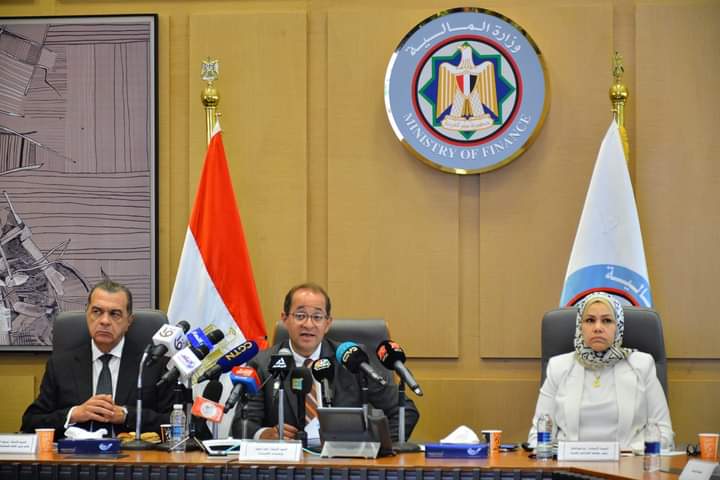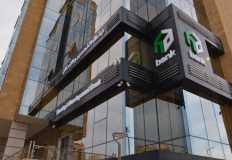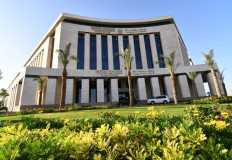
In the first press conference after assuming responsibility, Ahmed Kouchouk, Minister of Finance, announced the financial performance results for the year 2023/2024.
He emphasized that the primary
goal is to significantly enhance citizen services, stating, “We are committed
to delivering tangible improvements. The Egyptian people are the true owners of
the budget, and we will work diligently to optimize resources, creating
financial space for human development and other essential areas.”
Highlighting the importance of
tangible results, he explained, “Budget figures, no matter how positive, hold
little meaning unless they translate into a stronger economy, a more competitive
business environment, and an improved standard of living for our citizens.
The minister said that the challenges
are immense for the people, economy, and government. “The state is shouldering
a heavy burden in response. We've allocated 500 billion pounds for the first
two phases of the 'Decent Life' national project, aiming to uplift the lives of
half the Egyptian population and enhance their services.”
Addressing the citizens, the
minister added that “we did not impose new taxes last year. Instead, we
channeled the 30% increase in tax revenue towards healthcare, education, and
social protection programs. Our revenue growth rate surged by 60%, outpacing
expenditure growth. Non-tax revenue soared by 190% thanks to diversifying state
resources, notably the Treasury securing 50% of the 'Ras El Hekma' deal."
"We will again reallocate
our priorities to make public spending more socially responsive and mitigate
the impact of economic reforms. Education spending increased by 25% last fiscal
year, health by 24%, and social protection by 20%, all exceeding the non-debt
service expenditure growth rate of 18%.”
He explained that “social support
and protection allocations doubled to 550 billion pounds compared to 2020/2021.
Despite pressing needs, we allocated over 165 billion pounds for petroleum
products, 133 billion pounds for food supplies, and 35 billion pounds for
'Solidarity and Karama' pensions. Additionally, we paid 185 billion pounds to
the Social Insurance and Pensions Fund, totaling 913.2 billion pounds by June
2024."
"Despite global, regional,
and local challenges, we've maintained our commitment to fostering investment
and economic growth. Export support has reached 12.9 billion pounds, bringing
the total to 65 billion pounds for over 3,000 companies since October 2019.
Industrial production support has surged from 1 billion to 11 billion pounds.
Healthcare support for those in need has doubled from 1.9 billion to 3.4
billion pounds. Our social housing program for low-income residents received
10.2 billion pounds. Natural gas home services were allocated 3.5 billion
pounds, while transportation funding increased to 8.1 billion pounds to ensure
affordable passenger services."
Over 2,527 investors benefited
from the initiative to bolster productive sectors with approximately 80 billion
pounds, with the treasury absorbing interest rate differentials. The
presidential initiative to replace vehicles with green incentives delivered
more than 28,000 new cars to citizens, totaling over 718 million pounds.
The minister added: “We know where the problems are... and we are working to
solve them.” Financial policies will prioritize human development, production,
and exports. While the debt service remains substantial due to high inflation
and interest rates, the goal is to reduce it to 35% of total expenditures in
the medium term."
"Public investments have
declined, prompting intensified efforts to boost private investments,
particularly in industry and export. While progress has been made, greater
private sector contributions are essential. Through spending rationalization,
we've reduced the budget deficit to 3.6% and achieved a primary surplus of
6.1%, including 'Ras Al-Hikma' revenues.
To lower the debt rate, we're
implementing a comprehensive plan to reduce government debt in the medium term.
This involves decreasing debt costs, diversifying investors, currencies, and
markets, as well as extending debt maturity to enhance economic confidence.
Simplified dispute resolution and tax neutrality are crucial for attracting
investments."
The Minister pointed out that comprehensive
digital transformation in tax administration is expanding the tax base and
bringing in new taxpayers. Despite challenging economic conditions, the
internal debt-to-GDP ratio decreased by 4.7%. Our goal is to maintain annual
primary surpluses to reduce the debt-to-GDP ratio below 85% by the end of the
next fiscal year.
The external debt balance of
budget agencies dropped by over $3.5 billion between June 2023 and June 2024, a
decrease of more than 4%. The average age of this external debt reached 12.7
years by June 2024."
The minister said: We've begun rebuilding investor confidence and are committed to entering new markets, fulfilling obligations, and restoring Egypt's credit rating to a positive trajectory. Egyptian sovereign international bond yields have decreased by 6% for 3-year bonds and 1% for 5-year bonds compared to February. Insurance rates against payment risks for five and ten years declined by 224 and 168 points respectively. We successfully issued Chinese panda and Japanese samurai bonds at low costs. Additionally, we've stimulated the stock market and are automating and developing financial and tax settlement systems. A focus on variable-return government debt instruments will attract new investors."





